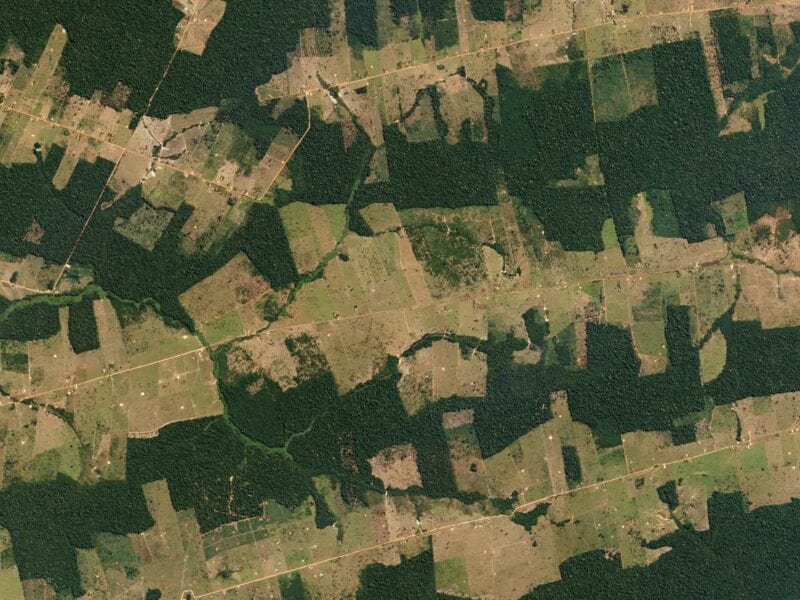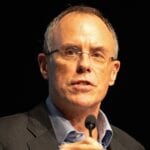Latest News

Photo: Kongsberg
The economist Herbert Stein once wrote, “If something can’t go on forever, it will stop.”
The question, of course, is when. It can be an exasperating question. Human beings have a talent for knowing about a problem, talking about it until we are blue in the face, and yet doing nothing about it, sometimes for decades. And then, in a matter of months, we can suddenly embrace change.
We saw this behavior in the pandemic. Remote work has been feasible for millions of workers for at least a decade. But it was not until we were forced out of our places of business that we began seriously reorganizing work to take advantage of technology.
A far more serious example is climate change. A denialist fringe may continue to loudly pretend otherwise, but most of us have concluded that scientists were right all along. The rising tide of drought, wildfire, glacial melting, reduced snowpack and superstorms – not to mention rising sea level itself – has convinced us: the Earth is changing as greenhouse gases accumulate in the atmosphere.
And yet, most of us are still content to know about the problem, stare at it, talk about it until we are green in the face, but not treat it as the impending crisis it is.
One country has decided to put money where its mouth is. Norway is the first to actually pay tropical nations to fight deforestation. Forest clearing for farming and resource extraction strips an area the size of New Zealand every year. Deforestation releases billions of tons of carbon into the air annually while reducing the greenery that produces the world’s oxygen. But a Norwegian grant to Brazil in 2008 helped preserve enough forest to keep 3 billion tons of carbon out of the air. Then, a 2010 agreement with Indonesia offered incentive payments for reducing emissions, and that nation’s carbon output dropped by half in just a few years.
How does Norway know that its money is being put to good use? That’s where the satellite industry comes in.
The All-Seeing Eyes in the Sky
In 2020, Norway announced a first-of-its-kind public-private partnership with Planet, Airbus, and KSAT. Together, they are providing access to detailed satellite imagery covering 64 countries, all for free.
Planet’s fleet of Dove smallsats captures images of the Earth’s entire landmass every day. Those pictures are detailed enough to reveal individual trees. Airbus is adding an archive of images captured by its Spot satellites since 2002. These allow today’s forests to be compared to those from years ago. The Norwegian company KSAT is pulling together all this data and providing technical support to users, who can view and download the files from the nonprofit Global Forest Watch or from Planet.
With daily updates from space, the images offer the first chance to see deforestation while it is happening. Logging and land-clearing operations deep in the forest can no longer hide. Governments and international organizations can identify illegal actors and pressure them to change. And all this value come free of charge, because the Norwegian government is paying for the service.
Realizing a Dream
In the long battle to begin doing something about climate change, this is a feel-good story. And there is one more reason to feel good.
When Planet’s founders CEO Will Marshall, Chief Strategy Officer Robbie Schingler, and Chris Boshuizen left NASA to start the company, this was exactly what they had in mind. They wanted to put technology in the sky that could produce actionable data on the whole planet fast enough to spur action – to let governments, businesses, and researchers make smarter, more informed decisions to better protect our world’s ecosystems. So, Norway’s generosity is also the fulfillment of their dream.
When will the rest of us be ready to turn talk into effective action? Not even Herbert Stein could predict that. But by bringing reliable, near-real-time facts to the battle against climate change, Norway and its satellite partners are showing how it can get done.
 Robert Bell is executive director of Space & Satellite Professionals International. SSPI produces the Better Satellite World campaign, which dramatizes the immense contributions of space and satellite to life on Earth. More at www.bettersateliteworld.com.
Robert Bell is executive director of Space & Satellite Professionals International. SSPI produces the Better Satellite World campaign, which dramatizes the immense contributions of space and satellite to life on Earth. More at www.bettersateliteworld.com.
Get the latest Via Satellite news!
Subscribe Now